Strata-East Pure Pleasure Reissues
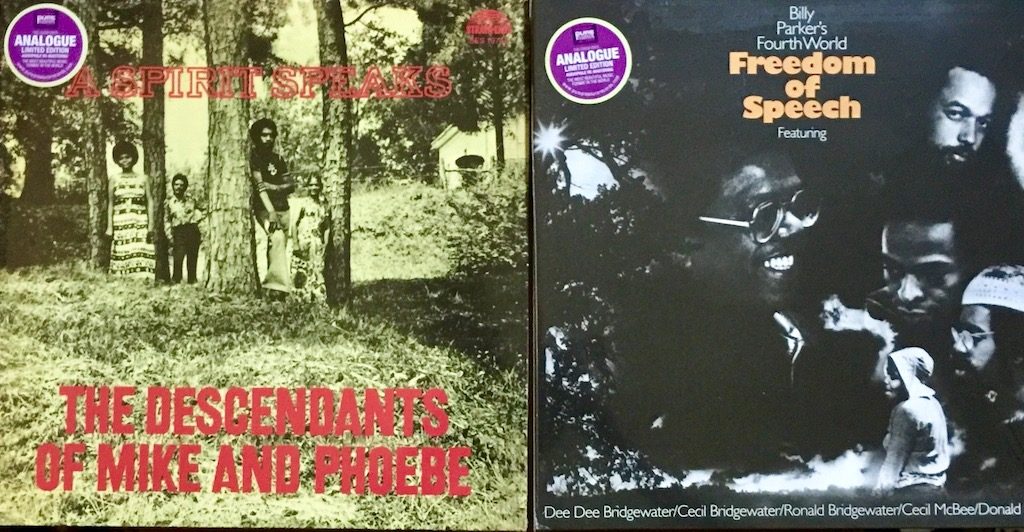
It’s no coincidence that my renewed interest in jazz came with my recent discovery of “spiritual jazz,” a form of avant-garde music that blossomed in the late ‘60s and early ‘70s. This was a period when, like other creators of music, jazz players and composers sought to push beyond the conventions of established genres. This shift also coincided with the emergence of Afro-centric music, the “Black Power movement” and a deeper exploration of the roots of the black experience in America. One of the most diverse and (at the time) accessible repositories of recordings from this period is on Strata-East, a label known to collectors of avant-garde jazz.
Gil Scott Heron’s Winter in America is probably the best-known record on the label. With his collaborator- Brian Jackson- Heron created an atmospheric study of the black experience in the inner cities of America. It’s funky, soulful and decidedly non-commercial, though it generated a single, “The Bottle,” that charted.
But this was not necessarily music that major labels were interested in releasing even though many Strata-East artists were well recognized on other, more mainstream jazz recordings:
Strata-East’s independence was not initially born out of choice. Charles Tolliver and Stanley Cowell had appeared on some of the great jazz sessions of the 1960s. A year after both playing on Max Roach’s Members, Don’t Git Weary they formed Music Inc., and released the LP The Ringer (under the name Charles Tolliver and Music Inc.) on Polydor in 1969. But by the time they had finished recording their next LP, jazz was losing its commercial pull. When they took the material to the majors at the start of the ’70s they were met with indifference. “Our surprise at not being able to place the freshly recorded tapes with a major company for a sufficient advance morphed into our determination to self-produce it,” explains Stanley Cowell. “The ’60s Black Power movement in the United States had an effect on many black artists toward self-reliance, entrepreneurship and self-determination.”[1]
What’s also intriguing about the material on this label is the wide range of styles, unique combinations of well-known players and a real sense of adventure that is evident in the recordings themselves; recordings not bound by the constraints of commercialism:
The artists were no doubt drawn by the community ethos and the control offered to them. That control was founded on what Stanley Cowell had termed the condominium concept, “The artist-producer signed a contract with Strata-East Records, furnished the recorded material and paid for the initial cost of fabrication,” he explains. “Strata-East Records then sold the LPs via our distributors. The artists/producers received the lion share of the profits as Strata-East Records only took a minor percentage after costs.”[2]
I’ve been selectively buying some original Strata-East pressings over the past year or two, but many of these pressings are now well into three figures in top condition.
The opportunity to buy quality reissues of the Strata-East records from an “audiophile” label like Pure Pleasure offers a real opportunity to both those familiar with the label and to new listeners willing to explore unknown terrain.
The two Strata-East albums released by Pure Pleasure so far (with at least two more in the wings) are good ones (though I have some questions, presented at the end of this piece, about the selection process for future reissues from the label):
Billy Parker’s Fourth World – Freedom Of Speech
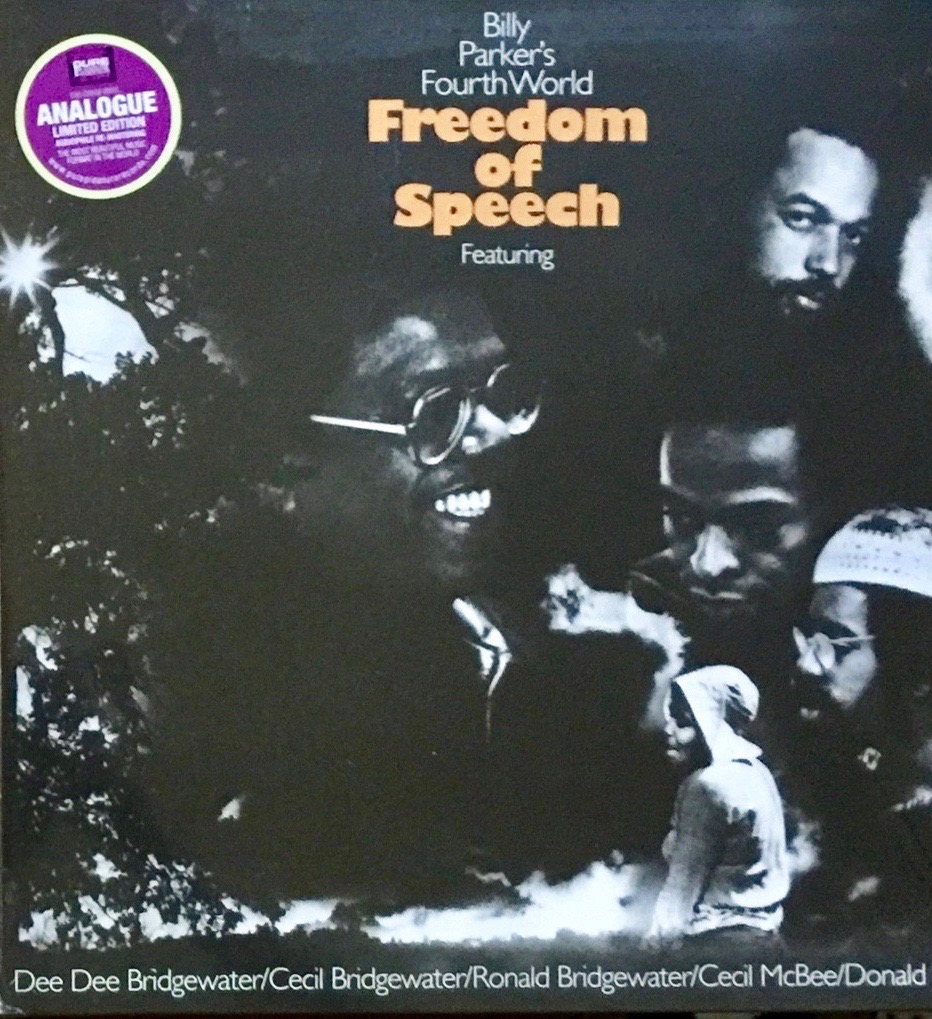
Some serious players on this album, including
Cecil McBee on bass and a trio of Bridgewaters on horns and vocals (including Cecil Bridgewater on trumpet whose playing is spectacular). The real mystery is the featured artist- Billy Parker, who played drums, produced the record and wrote the liner notes. One persistent blogger—neverenoughrhodes[3]— discovered that Parker had been living and teaching in Rockland County, NY. He then received further information from Parker’s nephew, who explained that Parker was an Ellington scholar; that after living in New York and travelling Europe, Parker settled in Nyack[4] to teach at the community college in Rockland County while working on advanced degrees at NYU.
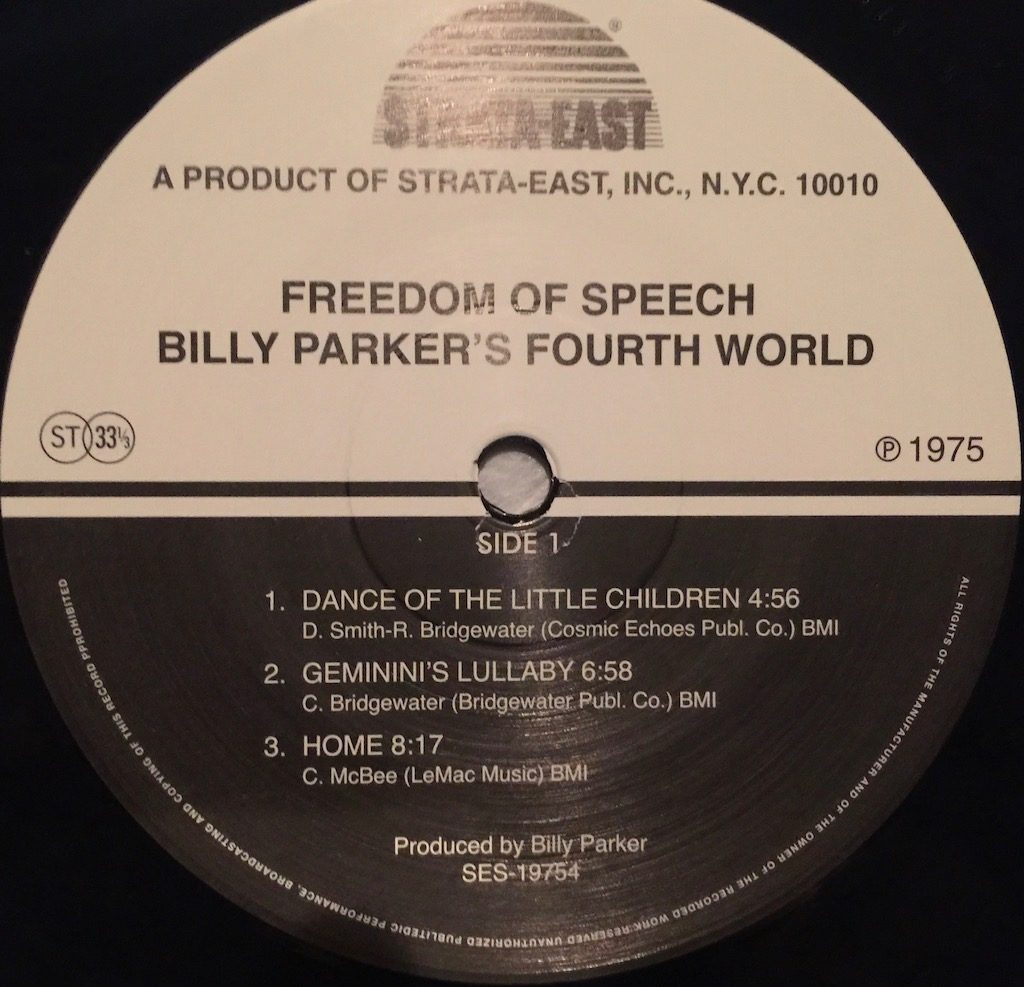
This album kicks off with “Dance of the Little Children,” an upbeat number with vocals, breaks-outs for individual instrumental solos and some impressive piano work by Donald Smith. There’s optimism here that’s infectious.
“Gemini’s Lullaby” is driven by the horns from the start, working in parallel, and then swinging into their own separate voices; the piano and drums hold it down and neither the trumpet nor the sax stray too far out, but they aren’t weighted down by conventional arrangements either. The piano takes a turn, as does the bass (Cecil McBee was a go-to session player for good reason) and everybody joins together to swing with little side excursions as the song fades.
Side one ends with “Home,” composed and arranged by Cecil McBee. It is far from bass-centric; the horns take the lead here, until the piano finally involves itself, intricately, almost formally, but still following the basic groove and you hear the bass work, finally, as defining—it isn’t a rhythm instrument, it is leading the melody and adding filigree (grace notes on a bass!), when everybody joins for the finale.
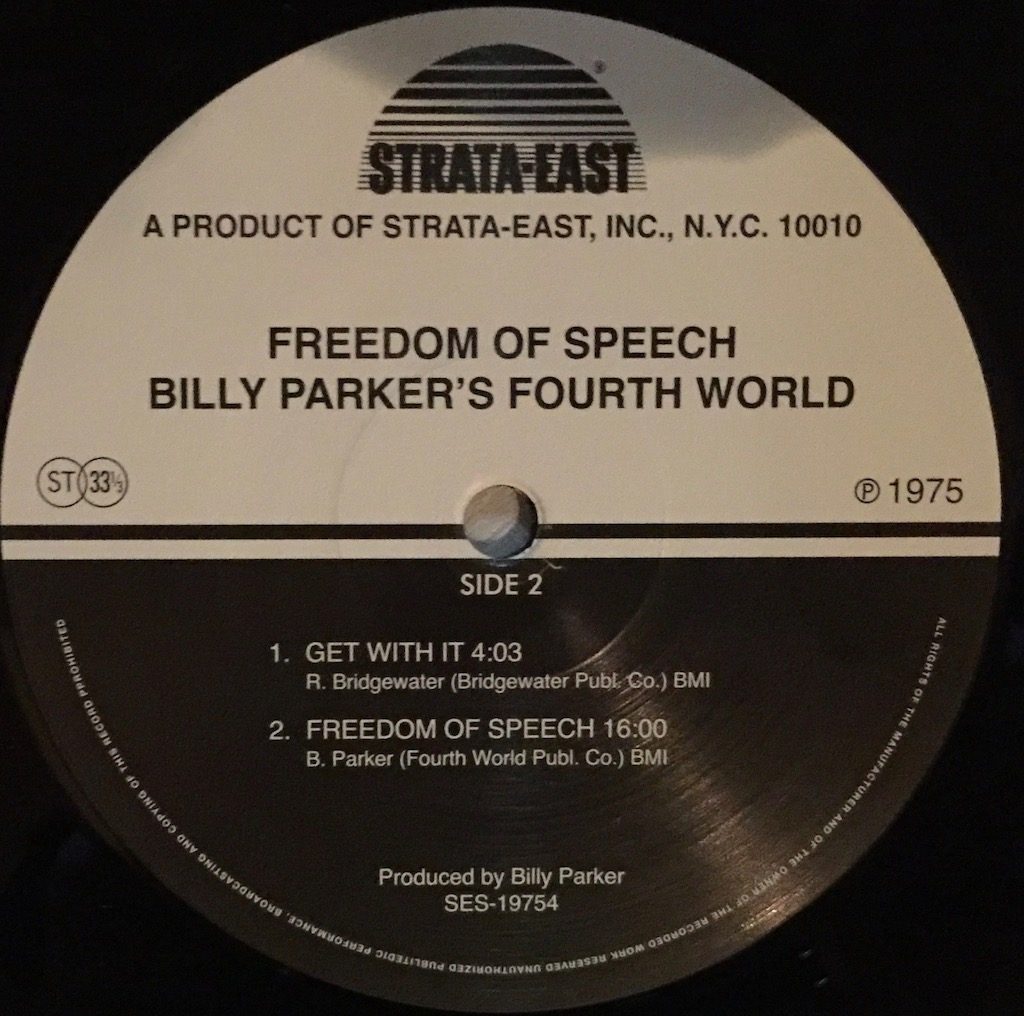
Side two opens with “Get With It,” a sweet jazzy vocal number that sounds like a cross between Brazilian pop and urban soul; the band is cool, the instrumental fills show you just how good these players are.
“Freedom of Speech” is a long track that takes up the remainder of side two. It starts with a long drum solo—but hey, it’s Billy Parker’s album, so why not?
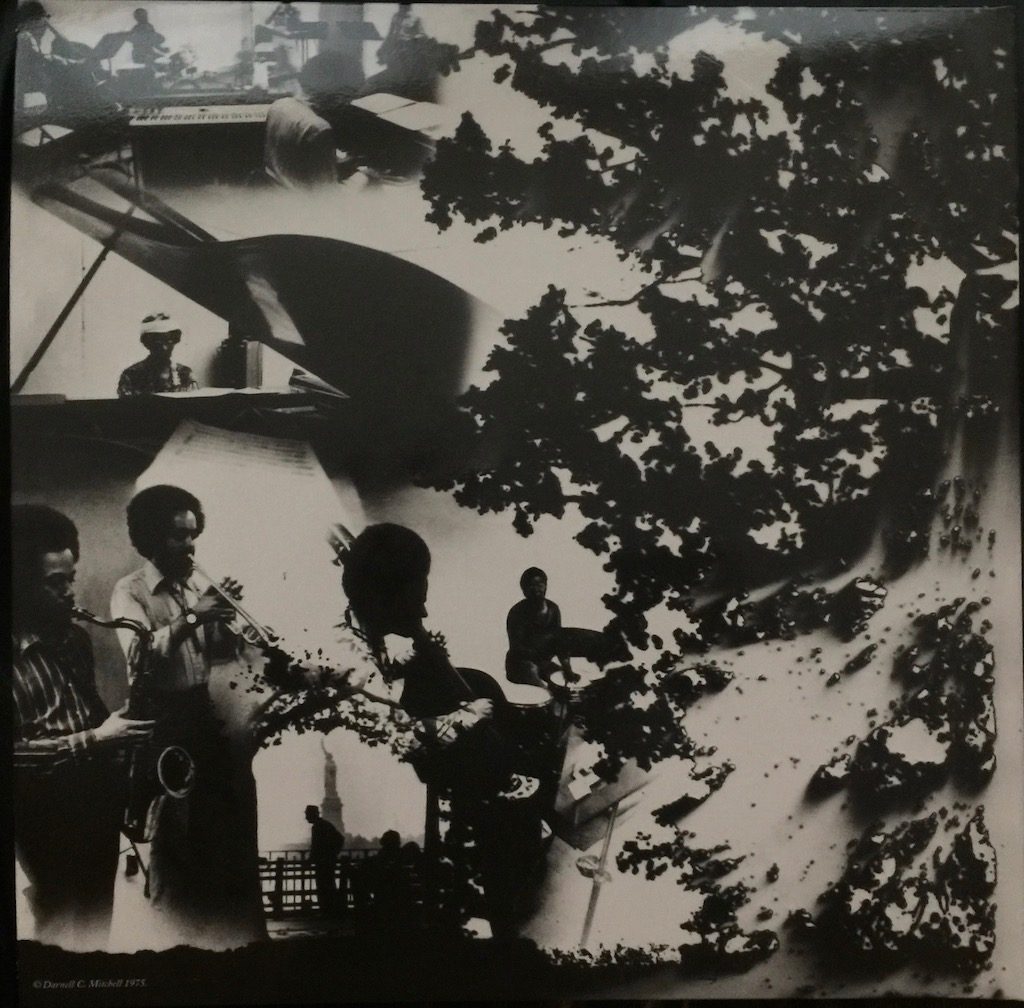
The band comes in eventually, full force, with the horns leading, but the piano—now an electric- probably a Rhodes based on the characteristic funky distortion of that instrument-takes over and you are in deep. All the pieces work together, the bass, the horns, Parker’s drumming, the chime-y-ness of that electric piano. The horns are reaching skyward and bomb diving through the middle passages until things step back a few paces—the tempo slows, the instrumentation becomes a little less dense and the sax takes the lead until everyone comes together on the last few beats.
The Descendants Of Mike And Phoebe – A Spirit Speaks
This record is literally a family affair, recorded in honor of the ancestors of the Lee family, who were bound into slavery; according to the liner notes, Mike worked overtime to buy his freedom and join his family. Bill Lee, father of film director Spike Lee, and his siblings, created this tribute at the Minot Studio in White Plains, New York, a studio used for a number of Strata-East sessions.
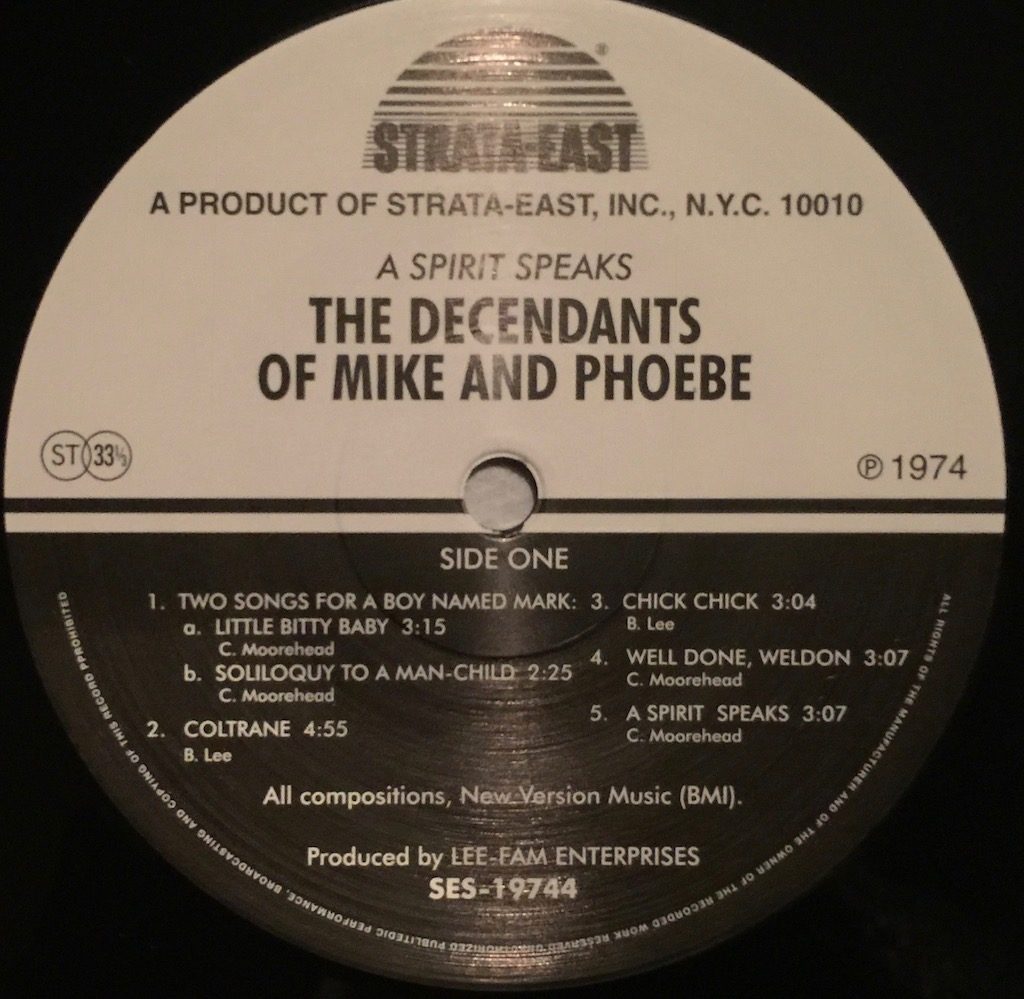
This is a strangely beautiful album that starts with a female vocal part braced against piano and bass that wouldn’t sound out of place on a Broadway stage. We then fall into a harder jazz vein, led by the bass on a track aptly entitled “Coltrane.” The side contains several other tracks before concluding with “A Spirit Speaks,” led again by those ethereal vocals- if this is a voice from the “other side” it is an uplifting one, not pained.
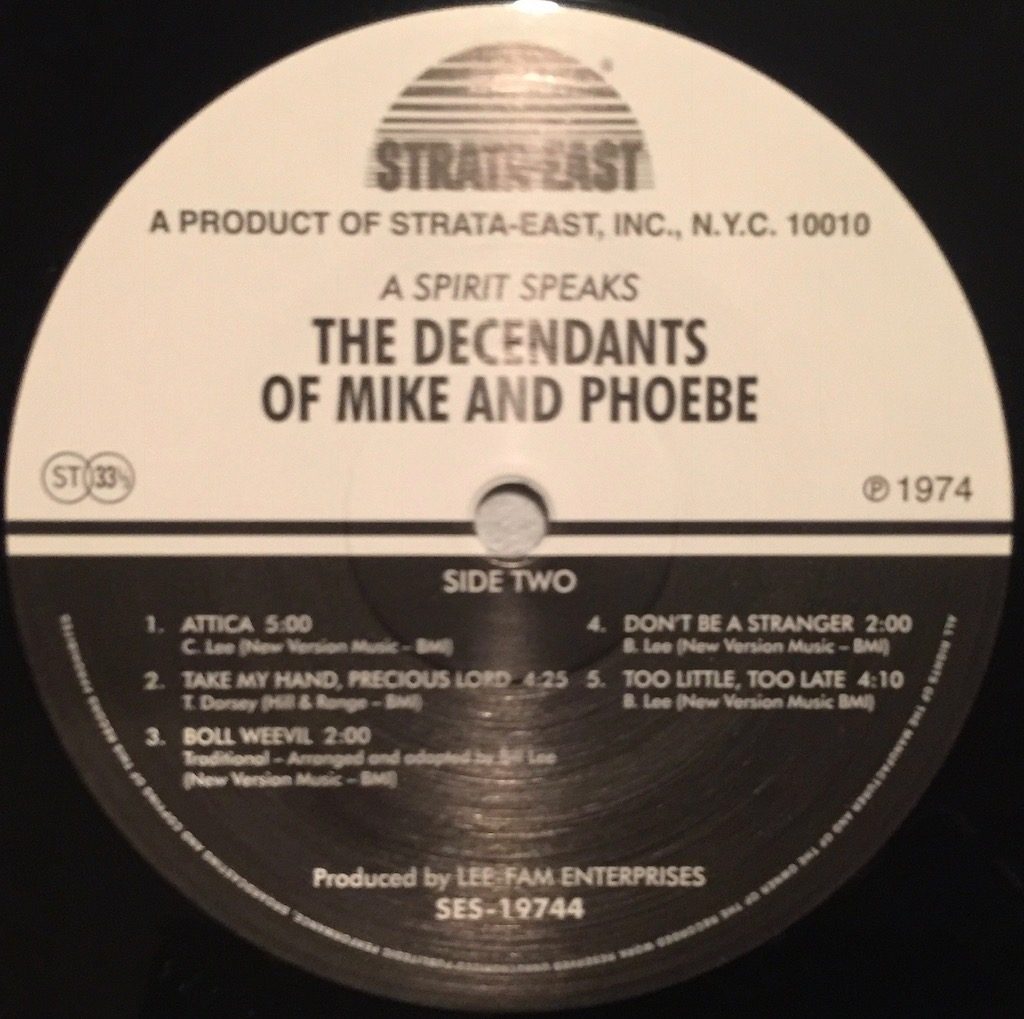
Side two begins with “Attica” -a remembrance of lives lost in an unnecessary tragedy that continued to haunt the survivors for decades. The album depends heavily on the soprano voice of A. Grace Lee Mims and “Take My Hand, Precious Lord” lets her show her stuff- it’s not exactly gospel in the traditional sense because we are hearing a solo vocal part rather than massed voices, but Mims has the power of an opera singer and uses it to full advantage.
“Boll Weevil” is a traditional bit of old style, almost barrel-house jazz, but it does not depend entirely on the piano, and there are tempo changes and drum flourishes that give it a contemporary flavor.
“Don’t Be a Stranger” starts with a piano lead into what could be a blues, but the chromatic changes and descending major and minor chords take us into less charted territory.
The album finishes with Ms. Mims’ glorious vocals on “Too Little, Too Late” sung with Bill Lee and a driving bass line accompanied by piano and horn flourishes.
The Pure Pleasure Re-Masters
These are very nicely made records, pressed at Pallas and mastered by Ray Staff. The cover artwork is of good quality and neither record had any issues; a quick cycle through the ultrasonic and they were ready to play. Quiet backgrounds, no obvious gremlins, either from the surfaces or in the recordings themselves, to distract from the music. I don’t have first pressings of these Strata-East originals to compare against, but based solely on my experience with other Strata-East original pressings, as well as various reissues of other records in the Strata-East catalog, these records acquit themselves well.
I did listen to an early copy of Gil Scott Heron’s “Winter in America” in the same session, and though it is less dense, musically, it had far more immediacy than either record under review. Clearly not a fair comparison for obvious reasons (entirely different performance and recording); the Heron record suffered from other issues -tracing distortion-that I attribute to kludgey playback equipment of the day and unfortunately, one of many flaws that come from buying “used” records. My original pressing of the Heath Brothers’ “Marchin’ On” suffers from no such flaws- it is pristine and has that same vibrant “you are there” quality as the Heron record (without the groove distortion). Though these Pure Pleasure copies sound very good, with better surfaces, my impression–absent a direct comparison to their original pressing counterparts- was of a more modern sounding, quiet record that might be at a small remove from the original- a little less of that immediacy that makes a record come alive. I’m speculating here though, see notes 6 & 7 below, and will not draw any conclusion about the ultimate sonics of these records compared to their respective original pressings until I can make a direct comparison. (Digitized needle drops are not sufficient for these purposes, though they are often telling of differences). Note also that I am not fanatical about adjusting VTA record by record though I can do so easily if necessary. These are good sounding records that you can crank up to achieve lifelike volume levels and enjoy.
I’ve put in queries to Pure Pleasure (about the masterings as well as its selection process from the Strata-East catalog). Strata-East itself is ostensibly still in business, and its founders, Charles Tolliver and Stanley Cowell are, as of this writing, very much alive and still making music.
These two records are fairly representative of what I know of the Strata-East catalog—they are not mainstream jazz, and offer a few twists, which make for a more interesting listen. They are not the edgiest releases in the catalog, and among the two, my vote would go to The Descendants of Mike and Phoebe record just for its sheer quirkiness. (Remember, I’m not a heavy avant-garde jazz listener, so material that falls outside the “norm” is often more appealing to me—although this is entirely a matter of personal taste). But, in anticipation of some visitors, I fired up the Billy Parker record again (a day after I did my initial listening session) and enjoyed the hell out of it.
Pure Pleasure has listed in its catalog two other Strata-East records— Regeneration by Stanley Cowell and Zodiac by Cecil Payne.[5] I will no doubt buy those when they are available.
I’m curious about the selection process—there are some very rare and unusual records in the Strata-East catalog. There are obviously a number of factors that go into the decision to re-master and release a more offbeat record (and I’d say that all the Strata-East records fit generally into that category): availability and condition of the tapes, as well as ownership and clearance issues, plus more pedestrian business issues like whether the record will sell.
I’m also not savvy to the contractual arrangements Cowell and Tolliver made when they initially released these albums; the concept of the label, described above, was to act as a collective for distribution of records created by their respective artists, which may add to the complications of a reissue if the artist (or artists’ heirs’) permission is necessary.
It’s worth remembering that the original Strata-East records were released during a low point in vinyl quality in the United States. The original copies I own are vibrant and good sounding, with few problems typical of a lot of records from that era. Prior use/ abuse, kludgey tone arms, potentially lousy vinyl quality from the era all make buying original pressings a challenge, as do the prices of many of the original Strata-East records today. (It’s one thing to buy a ½ dozen relatively cheap records to find a good player; it’s an altogether different matter to spend hundreds on each).[6]
Even if these Pure Pleasure releases don’t stand up fully against an original pressing, and that remains an open question for me at this point,[7] they are far, far better than the Strata-East reissues from other labels I’ve heard. And given the cost of either of these albums as an original pressing, buying all the Strata-East you can get from Pure Pleasure makes sense. You aren’t going to access this music on LP at this quality level without spending exponentially more money in the hope of finding a clean playing, unmolested original pressing.
Bill Hart
Austin, Nov. 2017
________________________________________________________________________________
[1] Andy Thomas, A Guide to Strata-East, http://daily.redbullmusicacademy.com/2014/06/strata-east-guide. This is a fantastic piece. My thanks to Aaron Gonsher from RBMA Daily.
[2] Id. at note 1.
[3] See http://neverenoughrhodes.blogspot.com/2008/05/freedom-of-speech-billy-parkers-fourth.html Kudos to neverenoughrhodes for his research, which drew out Parker’s family members who added invaluable information. A worthwhile read for background on this record.
[4] Another example of history at your backdoor. I lived near Nyack for the better part of 13 years and often met people on the streets, at the cafes and around the village who were vitally connected to our collective artistic heritage, from writers and musicians to film directors, photographers and sculptors. The area still has a bohemian vibe that attracts the creative and gifted among us. At the time I lived there, I was a “suit” working in Manhattan.
[5] http://www.purepleasurerecords.com
[6] Many of my beloved UK Vertigo Swirls were the result of buying multiple copies of some—records that now retail for well over $500 per copy—just to find my “keeper” copies. I’ve also gotten to the point where VG+ is no longer an acceptable grade due to grading inflation. Even some “mint minus” records are trashed since the vendors typically grade only visually, and even if play-graded, the seller’s standards may not be mine. It is a crapshoot. If you are going to buy original pressings, make sure you can return them at these prices.
[7] The Descendants album in top condition shows listings at around $500, a price that is likely to exclude all but the most well heeled collectors. If I do obtain an original pressing for comparison purposes, I will revisit. Interestingly, my recent comparison of Herbie Hancock’s Crossings yielded a conclusion that the remaster bettered a time capsule original.
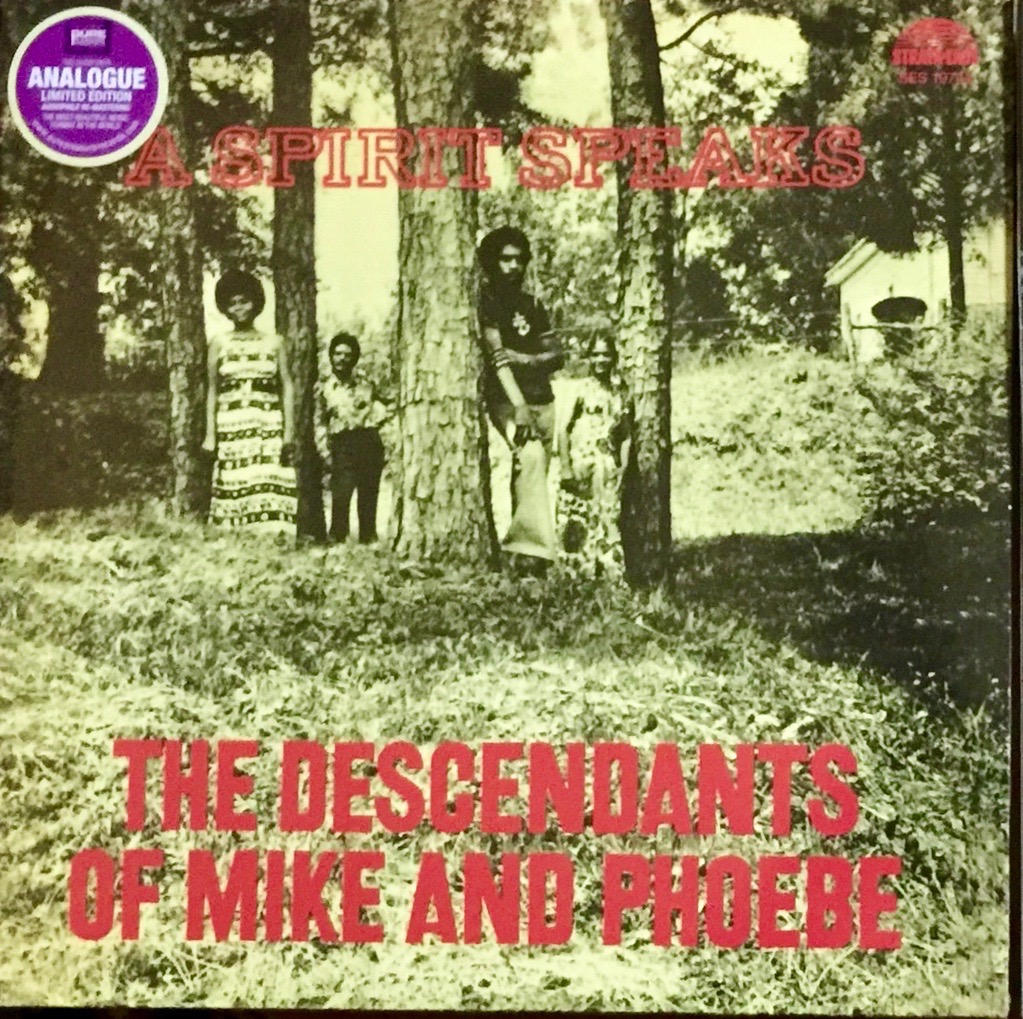
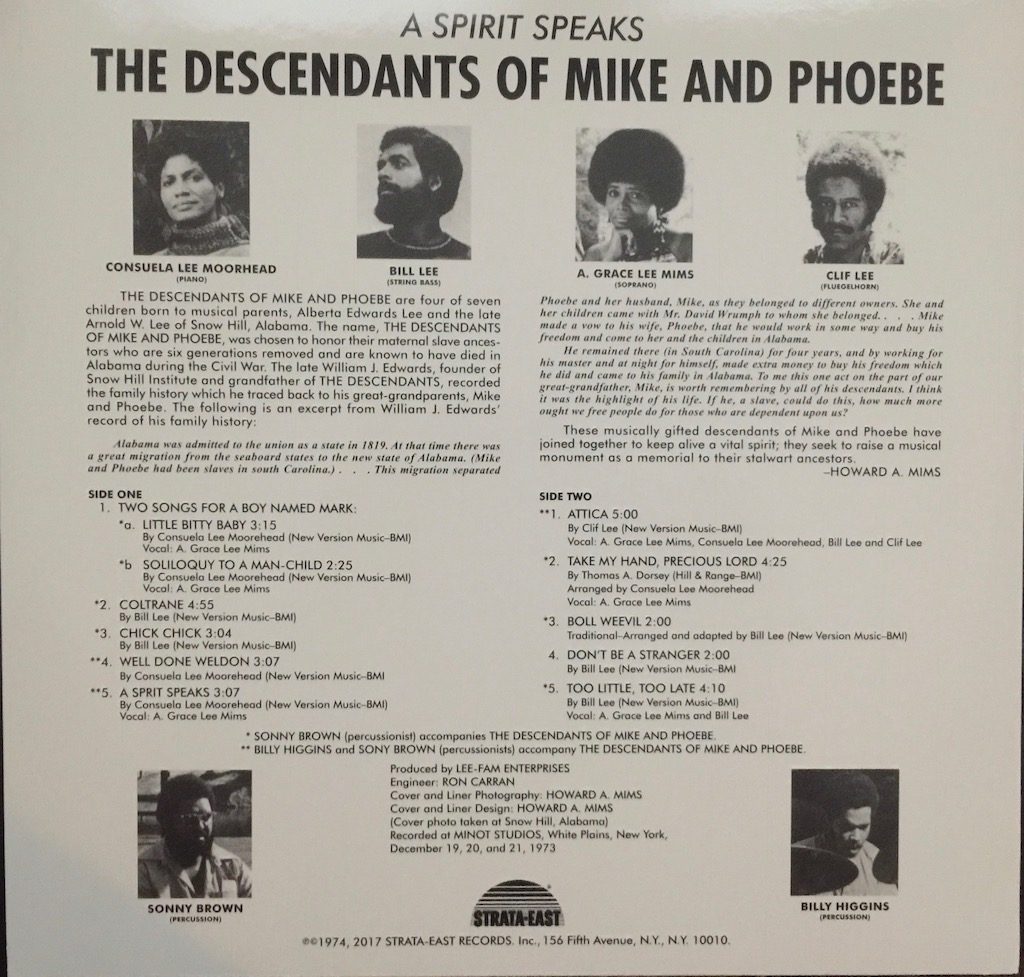
Leave a Reply
You must be logged in to post a comment.